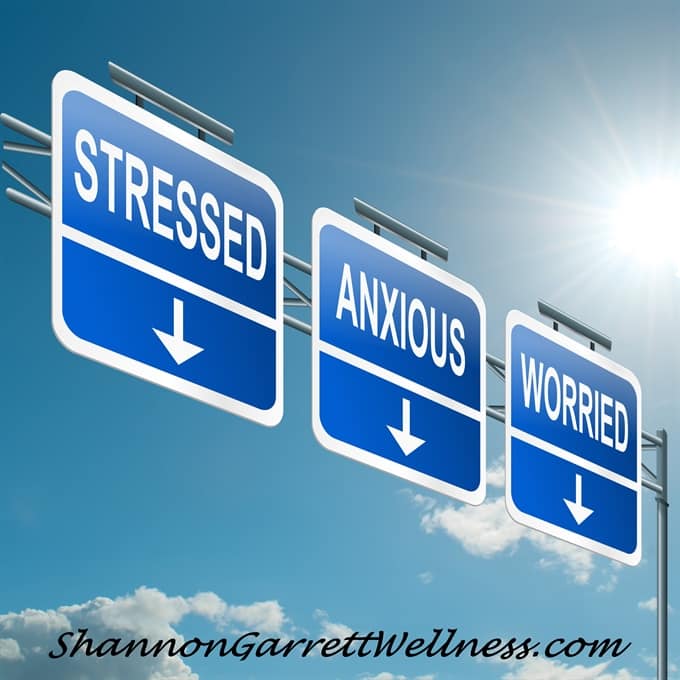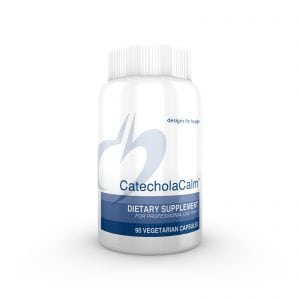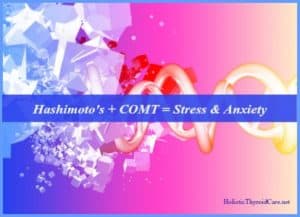
Coping with Stress
Stress is not only a psychological response – it is also a physical response to the demands of daily life that exceed a person’s ability to cope with a stressor. I’d like to share my personal journey with stress and anxiety with you. Many years ago I went through a 16-week stress and anxiety home study course by Lucinda Bassett. After having gone through a few years of mystery health issues and physical aches and pains (with no obvious cause) to ultimately experiencing a panic attack which landed me in the hospital, I had no hesitancy in doing the program because all the wisdom and therapies conventional medicine had to offer including antidepressants, pain management, and more did nothing to help my symptoms. They actually made them worse and this is why learning the skills for coping with stress is so important.
One panic attack I experienced lasted for almost two days and lead to heart palpitations, sweating, gasping off and on and just sheer panic. I drove myself to the emergency room (I don’t recommend doing this!) and had extensive cardiac tests to the tune of a $15,000 bill – only to find out there was nothing wrong with me or my heart.
Since then and having gone through a stress & anxiety program and what I’ve learned through education and training is that I am highly susceptible to the effects of stress and I must proactively manage it every day; otherwise, it will creep back in – and when it does, physical symptoms always surface.
Common Symptoms Related to Stress
- Joint pain
- Fatigue
- Sleep disturbance
- Headaches
- Lightheadedness
- Feeling like you’re floating
- Diarrhea
- Dizziness
- Irrational Fears
- Depression
- … and more
Have you ever experienced any of these? I am thankful that I am aware of the effects of stress and that I know how to recognize and manage stress. I empathize deeply with those who haven’t learned the tools. I have spent a long time from the decade when I owned and operated an orthopedic patient care facility in Kentucky, to receiving a degree in human development and nursing, to working as a cardiac nurse and then going to nutrition school. Today as I work as an autoimmune thyroid recovery nurse consultant and certified functional nurse-nutritionist and I can assure skills for coping with stress have been and continue to be very useful!
Stress is a common symptom and can even be a trigger of Hashimoto’s.
There is really no way to avoid stress and it can actually be a good thing. It can protect us when we need to flee, and keep us motivated and energized.
When unmanaged, however, stress can be very damaging especially when we fall into a trap of negative thinking, excessive worrying, inability to forgive, and chronic irritability, frustration, or anger. It’s chronic, daily stress that when goes unmanaged, or when we don’t know how to use healthy coping skills that get us into trouble.
High levels of stress weaken our immune system making us more susceptible to illness, weight gain.
Escalating anxiety often leads to panic attacks. Medication seldom helps long-term and are potentially harmful.
Have you ever gone to the doctor complaining of a little weight gain and the prescription was for you to learn to manage your stress? You leave the doctors office with this wisdom, not really knowing what to do.
Stress can kill, or stress can create. We choose (yes, choose) how we react to stress. It is within our power to choose how to react to stressors.
What isn’t in our power is that the world is full of stress and in our environment whether we like it or not. Lifestyle changes and learning healthy coping mechanisms can save your health if not your life.
Tips for Coping with Stress
Diet: Nutrition is a priority when it comes to your body’s ability to cope with stress. Eating a variety of whole foods will replenish nutrients essential for a healthy nervous system. If you have hypoglycemia (low blood sugar) the symptoms that can result can feel much like an anxiety attack. Eating small frequent meals can help, but avoiding refined, processed foods and simple sugars (which cause blood sugar to rise rapidly followed by crashing) are essential.
The majority of people are sensitive to caffeine and are either unaware or in denial that they are. I’ve written many times hinting to folks about the dangers of long-term use of caffeine and urge people, particularly who are dealing with adrenal fatigue, thyroid and autoimmune conditions to wean themselves off coffee.
Exercise: Exercise raises endorphins and helps to burn off stress, leaving the body better able to cope with the onslaught of the day, plus it helps you sleep better.
The key is to not exercise too much or too little. Too much high-intensity exercise stresses the adrenal glands and this can lead to adrenal fatigue which is not a fun experience to go through. It’s not a full-blown disease state like Addison’s disease but rather a functional problem with the adrenals that can take months to years to heal depending on how taxed they are. It’s wise to take care of your adrenal glands.
Lifestyle Tips: Many of us have “nature deficit disorder.” In other words, we’re not connecting with nature and the outdoors in the way we were made to.
Get outside (leave your cell phone at home) and take a walk or just go barefoot in the grass – unplug from modern technology if only for 10 minutes.
Social media will survive without you for a few minutes! Walking 20 minutes a day is excellent. The point is to get out and do something that moves your body and gets the blood flowing to the tissues while distracting your mind from work, television, computer, social media, worries, and fears.
Life goes on nonstop. We have to find some way to give our body and mind a break. Light a candle, play with your pet, “stop and smell the roses” for a change. My favorite ways to de-stress are to take a warm Epsom-salt bath, take a nap, and do some yogic breathing exercises, meditation, centering prayer or journaling.
I’m also a big visualizer…I “see” myself healthy, happy, and healed.
Sleep: This should seem like common sense, but I see people all the time who claim they need very little sleep to the point they believe they deserve a badge of honor for it.
This is complete silliness…we were designed to function with Circadian rhythm…sleep when the sun goes down, get up when the sun rises.
Man’s craftiness with the invention of artificial light doesn’t change that fact. Night shift workers are often fooled into believing that if they get enough sleep during the day that they’re not affected and this is not true. It’s not the same quality of sleep and it goes against the body’s natural rhythm – the adrenals know this because cortisol is going to want to drop at night while you sleep, and rise in the morning to wake you up.
There simply is no getting around this physiology of the human body. This is why people who work night shifts suffer more illnesses and have problems with their weight over the long haul because their immune system is weakened and their cortisol is out of balance.
Not getting the right amount of sleep or sleep quality has consequences such as anxiety, irritability, poor dexterity, lack of mental focus and a host of other troubling side effects.
Did you know that sleepy drivers actually kill more people than drunk drivers? Studies show that most of the sleepy drivers in car accidents just got off their evening shift…they’re not drunk, they’re sleepy.
Sleep hygiene is important too. Make it a goal to be in bed with the lights out and asleep by 10 pm.
The bedroom should be a place dedicated only to sleep. Not for eating, reading, playing with the kids, talking on the phone, watching television or exercising. The practices of good sleep hygiene will actually help train your body to prepare for deeper, better quality sleep.
Avoid stimulating activities two hours before bedtime including staring into the light of your iPad, iPhone, or computer. I really get frustrated even with myself at how we’re becoming a nation of tech zombies.
Adaptogens: Adaptogens are herbs for maintaining energy and coping with stress. They actually help the body deal with and recover from stress by balancing various organ systems particularly the adrenal glands and balancing cortisol, which usually goes too high in times of acute stress and then crashes as the result of chronic stress.
Adaptogens help us to feel more of a sense of vitality and energy, but not hyper. One of my favorites is Ashwagandha (Withania Somnifera). Ashwagandha is also called Indian ginseng and has long been used by Ayurvedic practitioners as a rejuvenating tonic. This herb has received extensive research reviews noting its anti-inflammatory, antitumor, antistress, antioxidant and immunomodulatory properties. It is used in many plant-based adaptogenic blends that are non-glandular such as CatecholaCalm which is designed to support healthy catecholamine levels with adaptogenic herbs and nutrients that may help mood and promote calmness and relaxation. CatecholaCalm’s unique formulation addresses adrenal gland health which may help people handle stress more effectively.
Adaptogens are often recommended for people with autoimmune conditions due to the science behind them and their balancing properties in adrenal health and for supporting coping mechanisms of the body. Adaptogens are a great adjunct to diet and lifestyle efforts to support our ability for coping with stress, reduce anxiety, improves mental acuity, reaction time and physical performance.
Feeling “Tired but Wired?” It’s more common than you may think and it’s related to stress and adrenal fatigue. Catechocalm can help.
Catecholacalm ™ Vegetarian Capsules
CatecholaCalm™ is designed to support healthy catecholamine levels with adaptogenic herbs and nutrients that may help mood and promote calmness and relaxation. This unique formulation addresses adrenal gland health, which may help people handle stress more effectively.* Made with non-GMO ingredients. These statements have not been evaluated by the Food and Drug Administration. This product is not intended to diagnose, treat, cure or prevent any disease. Catecholacalm ™ contains Vitamins C, B1, B2, B6, B12, pantothenic acid, magnesium, lemon balm, passion flower, valerian root, ashwagandha, taurine, L-theanine, and phosphatidylserine.
Read Next: Chronic Stress Triggers Hashimoto’s
For updates, news, events and interesting posts please like our Facebook page at Holistic Thyroid Care.




I’m going to make adjustments in my bedroom tonight.
That’s good to hear! Sleep hygiene is very important for good sleep quality. Glad you enjoyed this post!!